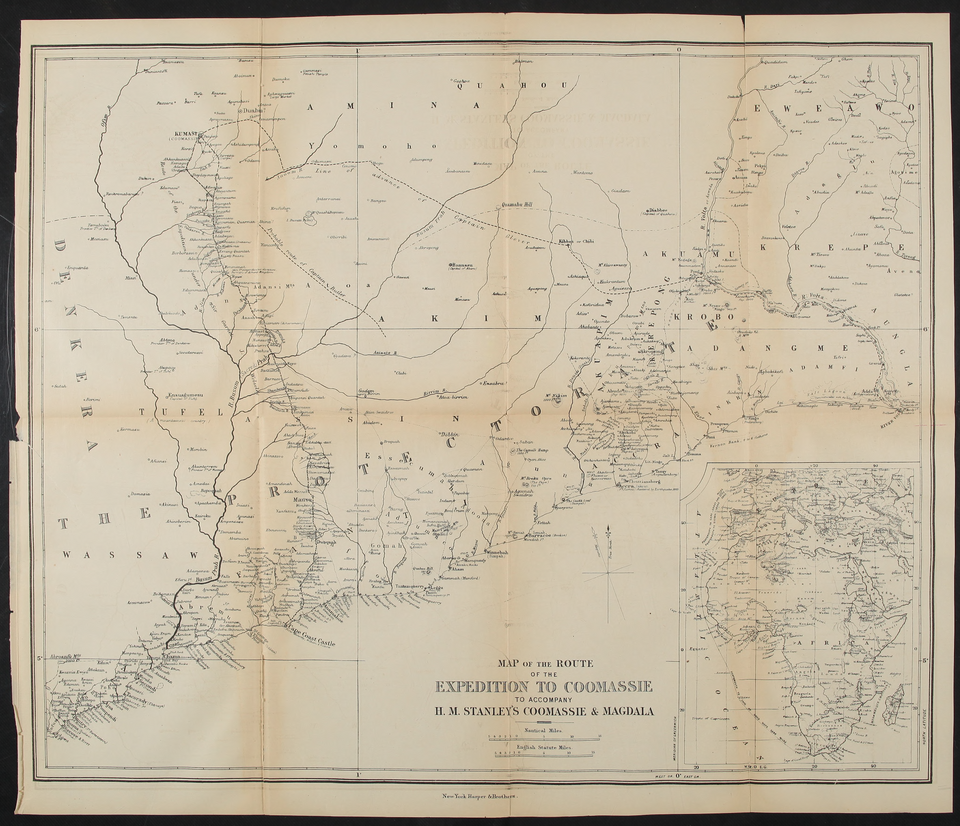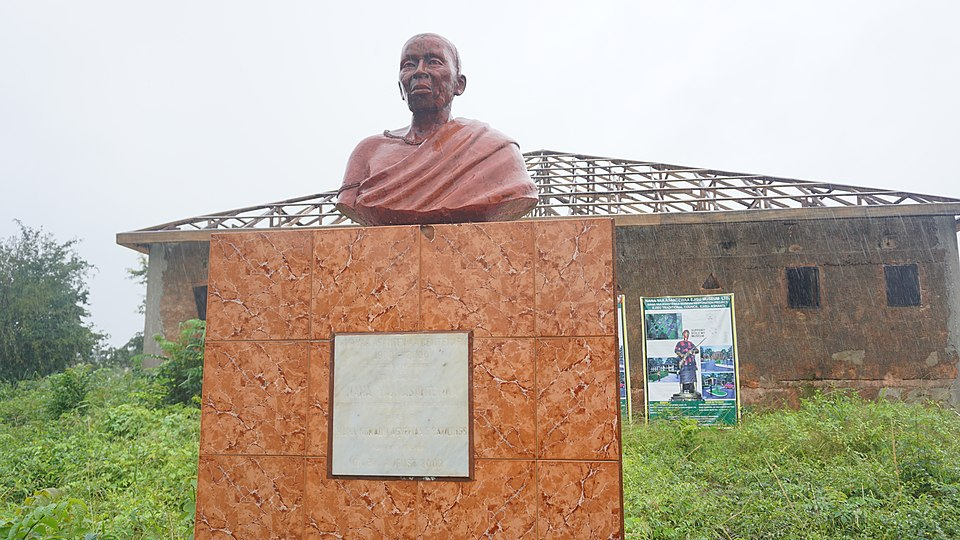IB Syllabus focus:
'Investigate the reasons for Asante resistance in the Asante Wars of 1873, 1896, and 1900, as well as British intervention and its consequences.'
Delving into the history of West Africa, this exploration focuses on the Asante Wars, pivotal events that showcase the intricate interplay between imperial ambition and local resistance, framing a significant chapter in the narrative of colonialism.
Historical Context of the Asante Wars
The Asante Empire, once a beacon of African autonomy and enterprise, was thrust into the global spotlight as it confronted British imperial ambitions. Rich in resources and culture, the Asante became emblematic of the broader resistance against European encroachment. The Asante Wars share similarities with other resistance movements in the region, such as the Mandinka resistance to French rule.
Pre-War Tensions
British Expansion: Eager to exploit the lucrative resources of West Africa, the British sought to extend their control beyond the coastal settlements.
Economic Interests: The Asante were key players in the regional gold trade, and control of this trade was vital to the empire's wealth.
Political Dominance: Britain's colonial strategy involved dismantling or co-opting existing power structures to facilitate direct control over territories and resources.
The Asante Wars: A Triptych of Conflict
The War of 1873
Immediate Causes: British support for the Fante states against the Asante led to direct military confrontation.
Asante Motivations:
Defence of Sovereignty: Upholding Asante autonomy against foreign domination.
Economic Preservation: Guarding the wealth generated from the gold and kola nut trade.
British Intervention:
Protection of Interests: Safeguarding trade routes and allied states.

Map from Henry Morton Stanley’s Coomassie and Magdala (1874) showing the British expedition’s route from the coast to Kumasi, with rivers, towns, and staging points marked. The geography helps explain why control of routes and allied coastal states mattered strategically in 1873–74. Some cartographic details (e.g., minor localities) exceed syllabus needs but improve orientation. Source
Imperial Strategy: Seeking to dismantle Asante power to prevent any obstruction to colonial expansion.
The War of 1896
Preceding Events: Despite a British victory in the previous conflict, the Asante maintained de facto independence, refusing to acknowledge the Treaty of Fomena.
Asante Determination:
Reassertion of Power: The Asante leadership aimed to restore their influence and control over vassal states.
Retaliation Against Colonial Pressure: Asante resistance was also a direct response to British demands for territory and trade concessions, similar to the Ethiopian resistance under Menelik II.
British Actions:
Strategic Offensive: The British sought to permanently remove Asante military capabilities and annex their territory.
Political Imprisonment: They exiled Asante King Prempeh I to Seychelles, aiming to dismantle the empire's centralised authority.
The War of 1900: The Yaa Asantewaa War
Catalyst: The humiliation of King Prempeh's exile and the sacrilegious demand by the British for the Golden Stool sparked this conflict.
Asante Leadership:
Queen Mother Yaa Asantewaa: Demonstrated remarkable leadership by rallying the Asante fighting force in defence of their sovereignty.

Modern statue of Yaa Asantewaa at the Yaa Asantewaa Museum, Ejisu, commemorating her leadership during the 1900 War of the Golden Stool. While a contemporary photograph does not exist, this well-known monument captures her symbolic role in mobilizing Asante resistance. Source
Asante Goals:
Defence of Culture and Independence: Protecting the Golden Stool was not merely symbolic; it was integral to the Asante's identity and political structure, reflecting the broader impact of colonialism on art and culture in Africa.
British Objectives:
Complete Control: The British aimed for a decisive victory to firmly establish colonial authority.
Symbolic Victory: Capturing the Golden Stool was intended to symbolise the complete subjugation of the Asante people.
British Intervention and Asante Resistance
Military Engagement
Asante Tactics: The Asante relied on their intimate knowledge of the terrain and utilised guerrilla warfare tactics against the British forces.
British Military Strategy: The British employed well-trained troops, superior weaponry, and naval support to combat Asante forces, similar to their strategies in the colonial administration of Gold Coast (Ghana).
Sociopolitical Dynamics
Asante Unity: The war fostered a heightened sense of unity among the Asante, reinforcing their collective identity in the face of foreign aggression.
British Diplomacy: Britain sought to weaken the Asante by forming alliances with neighbouring ethnic groups and leveraging existing regional rivalries.
Consequences of the Asante Wars
On the Asante Empire
Loss of Independence: The conclusion of these wars marked the end of Asante sovereignty, as the empire was absorbed into the British Gold Coast colony.
Cultural Impact: British efforts to suppress Asante cultural institutions and traditions, and the exile of their leaders, were intended to dismantle the structures that supported Asante resistance.
Economic Disruption: The imposition of British control over Asante lands led to restructuring of the local economy, with traditional industries coming under colonial domination.
On the British Empire
Colonial Expansion: The wars facilitated the expansion of British influence in the region, culminating in the establishment of the Gold Coast colony.
Military Expenditure: The financial cost of the wars was significant, necessitating increased taxation and stricter control over colonial subjects to recoup expenses.
Long-term Repercussions
National Identity: The wars, particularly the figure of Yaa Asantewaa, became potent symbols of resistance and pride, inspiring future generations in their quest for Ghanaian independence.
Cultural Resilience: The Asante maintained a robust cultural identity despite colonial attempts at cultural suppression, preserving traditions and the lineage of their leaders through oral histories and community practices.
Reflection on the Asante Wars
Historical Interpretations
Narratives of Resistance: The Asante Wars are often interpreted as emblematic of the broader struggle against imperialism and the fight to maintain indigenous ways of life, much like the rise of the Ottoman Empire which also faced significant external pressures.
Assessment of British Colonial Policy: The British approach in the region has been critically analysed, with many historians condemning the methods and motivations behind the empire's expansionist policies.
Educational Implications
The Asante Wars provide invaluable insights into the nature of colonial encounters, revealing a complex web of motivations, strategies, and responses. These conflicts serve as a testament to the determination of colonised peoples to resist subjugation and assert their autonomy.
These detailed notes capture the essence of the Asante Wars and their profound impact on both the Asante Empire and British colonial policy. They underscore the multifaceted nature of resistance, the strategic interplay between coloniser and colonised, and the enduring legacy of these conflicts in the historical consciousness of Ghana.
FAQ
The consequences of the Asante Wars for regional power dynamics in West Africa were profound. The Asante Empire's defeat and subsequent colonial control by the British disrupted the balance of power in the region. Traditional rivalries were altered as some states, previously subjugated by the Asante, gained favour or more autonomy under British rule. This reconfiguration also affected trade routes and political alliances. The British presence in the Gold Coast served as a base for further territorial expansion, influencing neighbouring regions and leading to the establishment of new borders, which continue to impact the political landscape of West Africa today.
The outcomes of the Asante Wars had a reinforcing effect on British colonial policies in other parts of the empire. Lessons learned in terms of military strategy, administrative control, and the economic integration of colonies were applied elsewhere. The British refined their 'indirect rule' approach, which sought to govern through local leaders while maintaining ultimate control, a strategy that was used extensively in Nigeria. Additionally, the military success despite initial resistance justified the British belief in superior military tactics and technology, which bolstered their confidence in expanding and consolidating their empire, particularly in Africa.
Internal divisions within the Asante Empire played a significant role in the outcome of the wars. The British exploited existing fissures between the Asante and their subjugated states, some of which sought independence from Asante rule. These subjugated states, such as the Fante, often allied with the British, providing crucial support against the Asante. Additionally, disputes within the Asante ruling elite over how to deal with the encroaching British influence undermined a unified response to the invasions. These internal conflicts weakened the Asante’s ability to resist, making it easier for the British to implement their divide-and-rule strategy effectively.
Asante society and governance underwent significant changes as a result of the British conquest. The wars and the subsequent British rule disrupted the centralised power structure of the Asante Empire. The traditional authority of the Asantehene (Asante king) was eroded with the imposition of British administrators and policies. Indirect rule led to the use of local chiefs as intermediaries, which sometimes altered traditional roles and loyalties. Social changes included the introduction of Christianity, Western education, and legal systems, which shifted cultural practices and societal norms. Economically, the Asante's traditional trading activities were supplanted by the colonial cash-crop economy, integrating them into the global market under British terms.
The underlying economic factors that led to the Asante Wars were primarily centred around control and access to resources. The Asante Empire was rich in gold, which had historically been the cornerstone of its wealth and power. The British, aware of these resources, aimed to incorporate the Asante territories into their colonial economic system to exploit these assets. Furthermore, control over the trade routes used by the Asante to trade gold, ivory, and slaves with other European powers and African entities was another economic incentive. The British imposition of the "Sagrenti War" in 1873 was a direct attempt to dismantle the economic foundation of Asante power and incorporate it into the wider colonial market system.
Practice Questions
The Asante military strategies were pivotal in the resistance against British colonial forces. The Asante's knowledge of the local terrain and their use of guerrilla tactics created significant challenges for the British, who were unfamiliar with the region's landscape. Despite the eventual British victory, Asante strategies delayed the colonial power's advances and, in many instances, inflicted considerable casualties. Furthermore, the Asante's commitment to protecting their sovereignty was exemplified through these strategic military efforts, which, even in defeat, displayed their resilience and tactical ingenuity.
The Asante Wars had a profound impact on British colonial administrative practices in the Gold Coast. Following the costly military campaigns, the British were compelled to restructure their administrative strategies to prevent further resistance. They increased taxation and tightened control over economic affairs to recover the war expenses and to fund the colony's governance. Additionally, the British took measures to weaken Asante political structures by exiling leaders and undermining traditional authorities. These practices reflected an adaptation to local resistance, demonstrating the British Empire's commitment to maintaining control over its colonies, while simultaneously revealing the administrative challenges posed by indigenous opposition.

